Annelie De Villers, eScholarship Research Centre, University of Melbourne
Archivists deal with the storage, maintenance and accessibility of unpublished information and knowledge within our societies. Those who access archives down the track are influenced by the way in which the information is represented, therefore what we do has political and cultural ramifications.
Ever heard the phrase ‘history is written by the victors’? People who own knowledge or information have power over the way in which future generations remember certain events, or even, certain groups within society. Therefore archives can empower or disempower.
I work as a research archivist at the University of Melbourne’s eScholarship Research Centre. The majority of the time I am lucky enough to I work on a project called ‘Return, reconcile, renew: understanding the history, effects and opportunities of repatriation and building an evidence base for the future’.
The Return, Reconcile, Renew project records the history and effects of the removal of Indigenous Australian ancestral remains since the time of colonisation. The trade of ancestral remains was large and was by no means a secret, as evidenced by the newspaper article below.

The relational database which is an outcome of the project consolidates available information related to the removal (and in some cases subsequent return) of ancestral remains. The database includes both published and archival resources relating to people, events, legislation etc., and bears witness to past atrocities and will enable future repatriation efforts of Indigenous communities.
PLEASE NOTE: This blog post does not contain any information related to specific ancestral remains and has been approved for publication by the community organisation.
While there are many elements to this project which I could write about, the question is, what are the challenges and how can you undertake this type of archival research without adding to the injustices of the past? This blog post is about lessons learned in the field.
Fieldwork Lesson 1: It won’t go to plan
In March this year, Gavan McCarthy (Director of the ESRC) and myself headed up to the Kimberley to capture the local knowledge and available information related to the repatriation of ancestral remains from the Kimberley.
Unfortunately Cyclone Blanche decided to visit the Kimberley at the same time – causing us to get our bags removed from the plane which was headed to Kununurra and catching the flight to Broome instead. (See Matt Brann @MattBrannRURAL March 6, 2017).
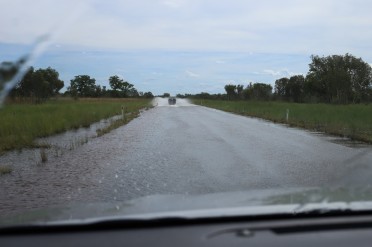
We were fortunate to not have gotten stuck in Kununurra – however the need to change flights at the last minute and the upgrade from a car to a 4×4 did result in a blow-out of the budget. A reality of fieldwork in isolated settings.
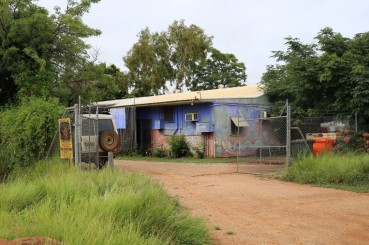
Fieldwork Lesson 2: Respect the community
Whilst in Broome we presented to the Kimberley Aboriginal Law and Culture Centre’s board of elders. As a sign of respect, Gavan and myself had done a heap of preparation for the presentation. I was saddened to see other researchers there who had not gone to the same effort, prompting a telling off by a senior elder:
Elder to researcher: “We aren’t here for you to bounce off – you become Dr and go off. We still here.” (See Annelie de Villiers (@annelie_de) March 9, 2017).
Do not take your relationships for granted – you are privileged to work with a community which has been subjected to poor research ethics and practice in the past.
Fieldwork Lesson 3: Listen
In South Africa the Zulu phrase, ‘hamba kahle’, is in popular usage and means ‘walk well’ or ‘go well’. Another interpretation of ‘hamba kahle’ is to ‘walk softly slowly’ and this saying always plays through my mind when working outside of Western culture.
For example, at KALACC we were told that some records have been stored alongside the ancestral remains which are awaiting reburial. When it was mentioned that Gavan would need to be smoked before entering the place where the ancestral remains are located, I gathered that it was a male-only domain. This assumption was later confirmed by the repatriation officer. By walking ‘softly slowly’ you manage the risk of offending members of the community by accidentally trampling on cultural protocols.
You can suggest ways in which you can help, but don’t push. If the offer isn’t taken up and actively encouraged, then it isn’t the right time. It doesn’t necessarily mean that it will never be the right time – just that ‘right now’ isn’t necessarily ‘right’.
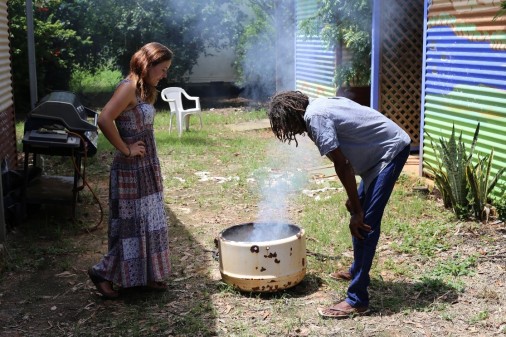
The most important thing to remember when listening, is that you need to pay close attention to the silences. My natural tendency is to fill any silence that comes along, however this urge just needed to be ignored. The photo above was taken while Uncle Tom was building the fire in readiness for the smoking ceremony. He allowed me to watch but probably only said two sentences to me in the five minutes we stood there.
Inevitably you will make missteps and if you are corrected by a member of the community, feel complimented! The elders wouldn’t bother teaching those they deem unteachable. After all, remember that you are there to learn.
Doing data on country
Throughout the Return, Reconcile, Renew project, we have learnt the value of doing data on country. It not only provides you with direct access to community memory and resources, it also reminds you of the importance of engaging with your informatics in a conscious manner.
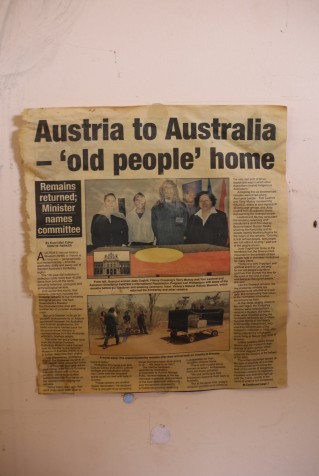
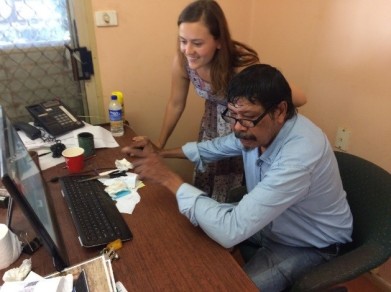
Do keep in mind that while doing fieldwork you will likely have no internet or phone reception! But heck, that’s what fieldwork is all about.
Annelie can be contacted via Twitter: @annelie_de
Reblogged this on Personal Recordkeeping, Identity and Archives.
LikeLike
I’m sending a link to this to my brother, Gavan Breen, who has been doing fieldwork in indigenous communities for about 60 years. I’m sure he’d agree with most of your points, even if I can’t for the life of me imagine what “engaging with your informatics in a conscious manner” could possibly mean.
LikeLike
An interesting blog post Annelie. Thank you for sharing. 🙂
LikeLike